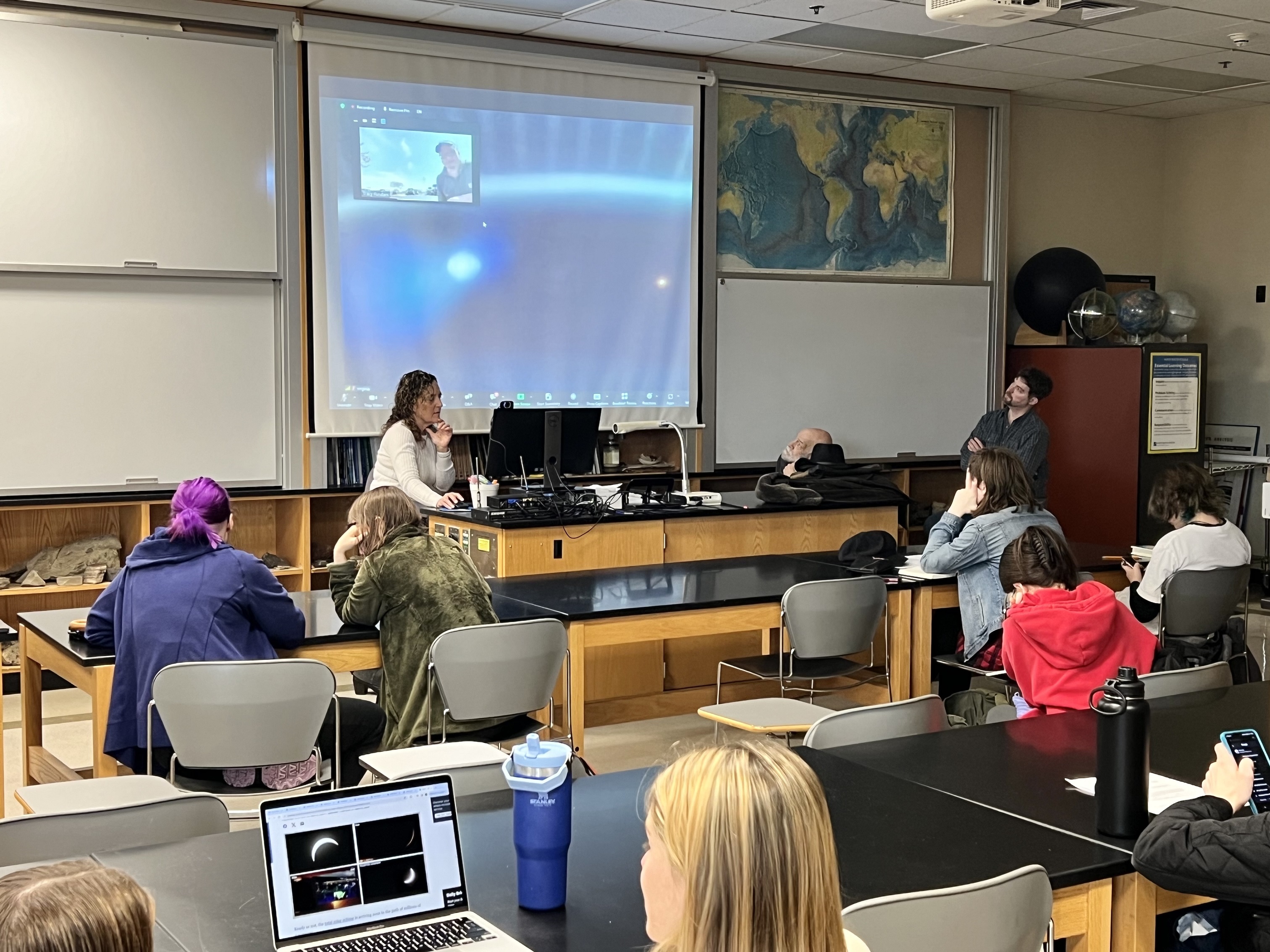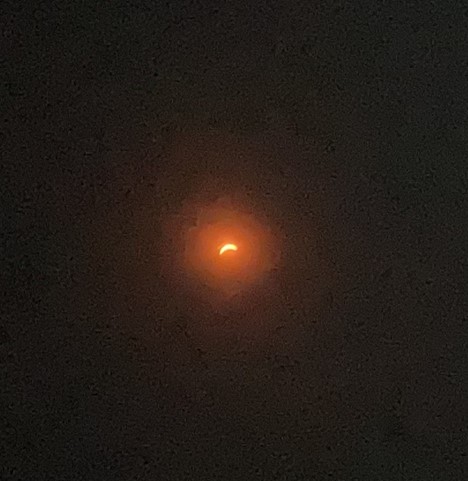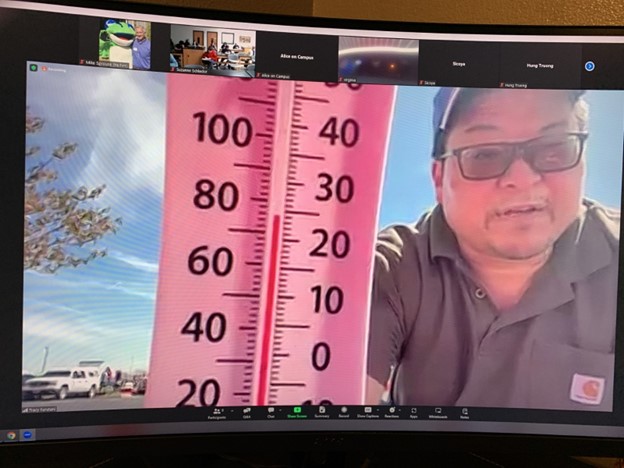Eclipse Experience Shared in North Seattle College Classroom

North Seattle College’s Astronomy 100 course has been a rare occurrence as it has not been offered in roughly a decade. Also a rare occurrence was Monday’s total solar eclipse, which was not significantly viewable in the Pacific Northwest. But longtime North faculty member and Astronomy 100 instructor Tracy Furutani did not let that stop his class from experiencing the big event.
The April 8 total solar eclipse’s path crossed diagonally across North America, passing over Mexico, the United States and Canada. To experience the event in near-totality, Tracy situated himself near St. Louis — 2,100 miles from Seattle — and livestreamed the eclipse to his class.
“The eclipse started at noon Seattle time, right in the middle of my Astronomy 100 class,” Tracy said. “I planned to be in a small town called Ste. Genevieve, just south of St. Louis, and was able to livestream the event via Zoom back to the students, where it was projected onto the classroom screen.”
Tracy noted that he chose the location of Ste. Genevieve, Mo., because the eclipse’s totality would last “around three glorious minutes” there.
Prior to this year’s eclipse, Tracy had done this once before for an Astronomy 100 class. That was in November 2012, and he used Skype to stream the eclipse from Cairns, Queensland, Australia. Unfortunately, it was cloudy that day and the experience was not as ideal.
“Like many things in science, our ability to experience these rare events relies on factors that are not in human beings’ control,” Tracy noted. “But when there is an opportunity to have a shared experience, like that of a total solar eclipse, my feeling is that you do what you can to make it happen. These are rare opportunities.”
How rare? The next visible solar eclipse to cross over the U.S. will not happen until Aug. 23, 2044, according to the National Aeronautics and Space Administration (NASA).
Will Tracy do it all over again in 20 years?
“I’ve learned to never say never,” he said. “But two decades is a long time, and it’s just one more reason why I wanted to take advantage of the situation that presented itself in 2024.”

The solar eclipse at 90% totality. (Photo courtesy of Tracy Furutani.)

Tracy Furutani shares a thermometer reading with his class via Zoom from Ste. Genevieve, Mo., to show temperature fluctuation during the April 18 total solar eclipse.

The solar eclipse with Venus and Jupiter visible, a rare sight during daylight hours. (Photo courtesy of Tracy Furutani.)